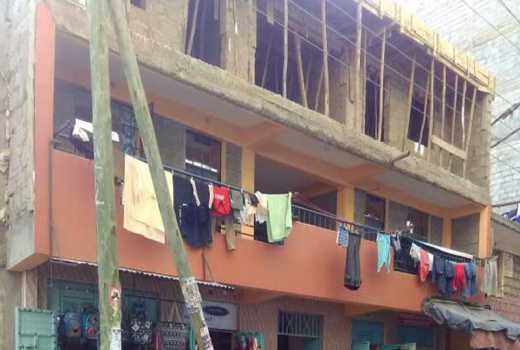×
The Standard e-Paper
Kenya’s Boldest Voice

Milka Ayuma, a 22-year-old mother of one, is at peace living in her house in Transami in Pipeline estate. She lives on the second floor of a building that is still under construction.
There are plans for three more floors in the building.